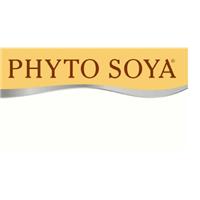Stockholm: A study to be published in a forthcoming edition of the Scandinavian Journal of Obstetrics and Gynaecology reveals that Pycnogenol® (pic-noj-en-all), pine bark extract from the French maritime pine tree, reduces climacteric symptoms such as hot flashes, depression, panic attacks, cholesterol and other common symptoms associated with women entering the perimenopause.
The results suggest Pycnogenol® may serve as an alternative treatment to estrogen replacement therapy, which is the most common remedy of pre-menopause (perimenopausal) symptoms.
According to the U.S. Department of Health and Human Services, perimenopause is the natural part of aging that signals the ending of a womans reproductive years. It marks the time when a womans body begins its move into menopause and can last anywhere from two to eight years.
Pycnogenol® was chosen for this study due to previous research revealing health benefits associated with cognitive function, skin elasticity, nitric oxide stimulation, free radical scavenging and the broadening of antioxidant activity, said Dr. Peter Rohdewald, Institute of Pharmaceutical Chemistry at Germanys University of Munster and a lead researcher of this study. Achieving these health benefits is key to treating perimenopausal symptoms naturally.
The randomized, double-blind, placebo controlled study was conducted at Ham-Ming Hospital in Taiwan with 155 perimenopausal women. Each day, patients either received 200 mg Pycnogenol® or placebo, and recorded their symptoms using the Womens Health Questionnaire (WHQ). The WHQ consisted of the following: somatic symptoms, depressed mood, vasomotoric symptoms, memory/concentration, attractiveness, anxiety, sexual behavior, sleep problems and menstrual symptoms.
Additionally, patients visited the clinic at one, three and six months following start of treatment. At each visit, BMI, blood pressure, lipid profile and total antioxidant status were recorded. After six months, LDL (bad) cholesterol dropped by 10 percent with Pycnogenol® treatment compared to placebo. Patients who supplemented with Pycnogenol® also had increased antioxidant levels compared to the placebo group.
During treatment, rapid improvement of symptoms was reported from the Pycnogenol® group after one month. All symptoms of the WHQ improved significantly compared to the start of treatment, and patients did not report unwanted side effects. In the placebo group, no significant changes of symptoms were recorded.
There is a shift away from the use of hormone replacement therapy due to side effects and in its absence women are searching for safe and natural options to help manage their symptoms. This study investigating Pycnogenol® as a potential natural alternative is very encouraging in view of the safety of Pycnogenol® as it does not bear any hormone-like activities at all, said Dr. Rohdewald.
Numerous other published studies reveal Pycnogenols® effectiveness for womens health, such as relieving menstrual pain and endometriosis, and it is patent-protected for this application. Additional studies reveal Pycnogenol® is a natural anti-inflammatory, which provides the basis for the rationale to use Pycnogenol® to naturally moderate inflammatory pain sensation involved in menstruation.
Pycnogenol® is available from pharmacies and health food stores nationwide priced from £9.99 for 30 capsules. For further information please visit www.pycnogenol.com
Notes to editors:
About Pycnogenol®:
Pycnogenol® is a natural plant extract originating from the bark of the Maritime pine that grows along the coast of southwest France and is found to contain a unique combination of procyanidins, bioflavonoids and organic acids, which offer extensive natural health benefits. The extract has been widely studied for the past 35 years and has more than 220 published studies and review articles ensuring safety and efficacy as an ingredient. Today, Pycnogenol® is available in more than 600 dietary supplements, multi-vitamins and health products worldwide. For more information or a copy of this study, visit www.pychnogenol.com

